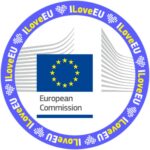Photo credits: European Youth Event 2018
Last week the European Commission adopted a Communication on the legacy of the European Year of Youth 2022. This communication deepens the youth dimension of EU policies with 60 actions directly addressing young people and allowing young Europeans to have a greater influence on EU policies.
When designing EU policies, the European Commission will apply a ‘youth check’ which will ensure that the impact on young people is considered. This will be done by making sure that the existing Better Regulation tools, including consultations and impact assessments, are used to their maximum potential.
These tools will be complemented with several youth-specific instruments under the 2019-2027 EU Youth Strategy. Other initiatives that go hand-in-hand with the youth check include policy dialogues between young people and Commissioners, a series of dedicated youth mainstreaming roundtables and a new youth stakeholders’ platform that will facilitate a continuous exchange with youth organisations, youth researchers, Member State representatives and other EU institutions. The European Commission will also strengthen the EU Youth Dialogue.
In addition, the Commission has put forward several concrete actions addressing young people’s concerns on topics such as health and wellbeing, environment and climate change, education and training, international cooperation and European values as well as employment and inclusion.
As part of the European Commission’s effort to bring the EU close to young people, the European Youth Week 2024 (12-19 April 2024) will focus on democratic participation and elections. Consequently, the European Elections (6-9 June 2024) further amplify the importance of engaging young people in a meaningful way, building on the achievements of the European Year of Youth.
Read the full communication on the European Year of Youth
eur-lex.europa.euRead the European Union Youth Strategy 2019-2027
eur-lex.europa.euRead more about the European Youth Week 2024
youth.europa.euRead the Youth Participation Strategy
participationpool.eu





